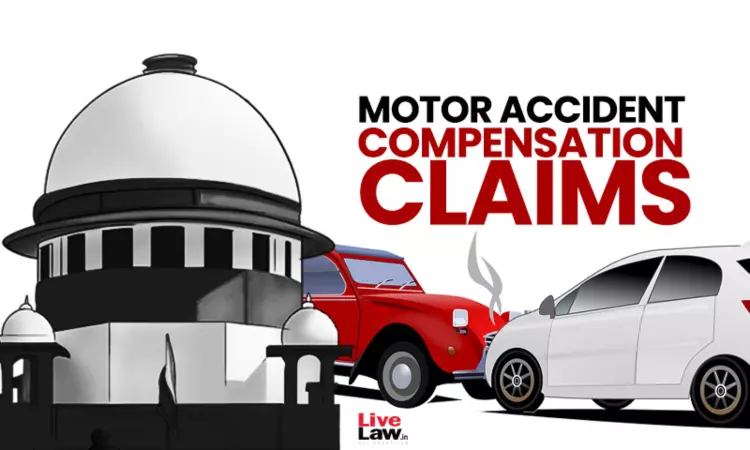Supreme Court Prohibits Use Of 'Split Multiplier' In Motor Accident Claims, Holds That Income At Time Of Death Must Be Considered
Yash Mittal
7 Nov 2025 6:24 PM IST

The Supreme Court has delivered a significant ruling on the computation of compensation in motor accident claim cases, holding that the 'split multiplier' method should not be applied. The Court clarified that compensation must be calculated solely on the basis of the deceased's income at the time of death.
“we hold that the income as on the date of death is to be taken to calculate the compensation…. In other words, split multiplier is a concept foreign to the Motor Vehicles Act, 1988 and is not to be used by the Tribunal and/or Courts in calculation of the compensation.”, the court held.
A bench of Justice Sanjay Karol and Justice Prashant Kumar Mishra set aside the Kerala High Court's decision, which applied the split multiplier method, resulting in a significant reduction in the compensation amount awarded to the Appellants-deceased's dependents.
The split multiplier method applies a lower multiplier by considering a reduced income for the deceased after superannuation. It assumes that the deceased would rely solely on pension post-retirement, without accounting for the possibility of engaging in other employment or earning additional income.
The case involved a fatal accident in 2012 that claimed the life of T.I. Krishnan, a 51-year-old Assistant Engineer. While the Motor Accidents Claims Tribunal (MACT) awarded his family approximately ₹44 lakh, the Kerala High Court, in an appeal, reduced the compensation by over ₹7 lakh. The High Court applied a "split multiplier," reasoning that the deceased would have retired at 60, after which his income would have dropped significantly.
The deceased's family appealed to the Supreme Court, arguing that the deceased, given his qualifications, could have found employment after retirement and that the split multiplier was incorrectly applied.
Allowing the appeal, the judgment authored by Justice Karol observed:
“Superannuation from service hardly qualifies as such an exceptional circumstance, which would justify the use of split multiplier. It is only a natural progression that a person who enters service must also exit at some point in time. The same cannot be taken as a negative circumstance against the deceased person or a person injured severely, leading to incapacitation or permanent disability. The position, in our considered view, is evidently clear from what stood observed by this Court in Sumathi v. National Insurance Co. Ltd.”
Applying the correct multiplier of 11 (for age 51) and recalculating the amounts as per established norms in Pranay Sethi case, the Court enhanced the total compensation payable to the Appellants to ₹47,76,794.
To ensure its ruling is implemented uniformly, the Court issued a sweeping directive that "A copy of this order is directed to be circulated by the Registrar (Judicial) of this Court to the learned Registrars General of all the High Courts for necessary information and compliance. It is requested that an e-copy of the order be also circulated to the Tribunals forthwith."
Cause Title: PREETHA KRISHNAN & ORS. VERSUS THE UNITED INDIA INSURANCE CO. LTD. & ORS.
Citation : 2025 LiveLaw (SC) 1073
Click here to read/download the judgment
Appearance:
For Petitioner(s) :Mr. Bijo Mathew Joy, AOR Ms. Gifty Marium Joseph, Adv.
For Respondent(s) :Mr. Pradeep Gaur, Adv. Mr. Amit Gaur, Adv. Ms. Sweta Sinha, Adv. Mr. Rameshwar Prasad Goyal, AOR


